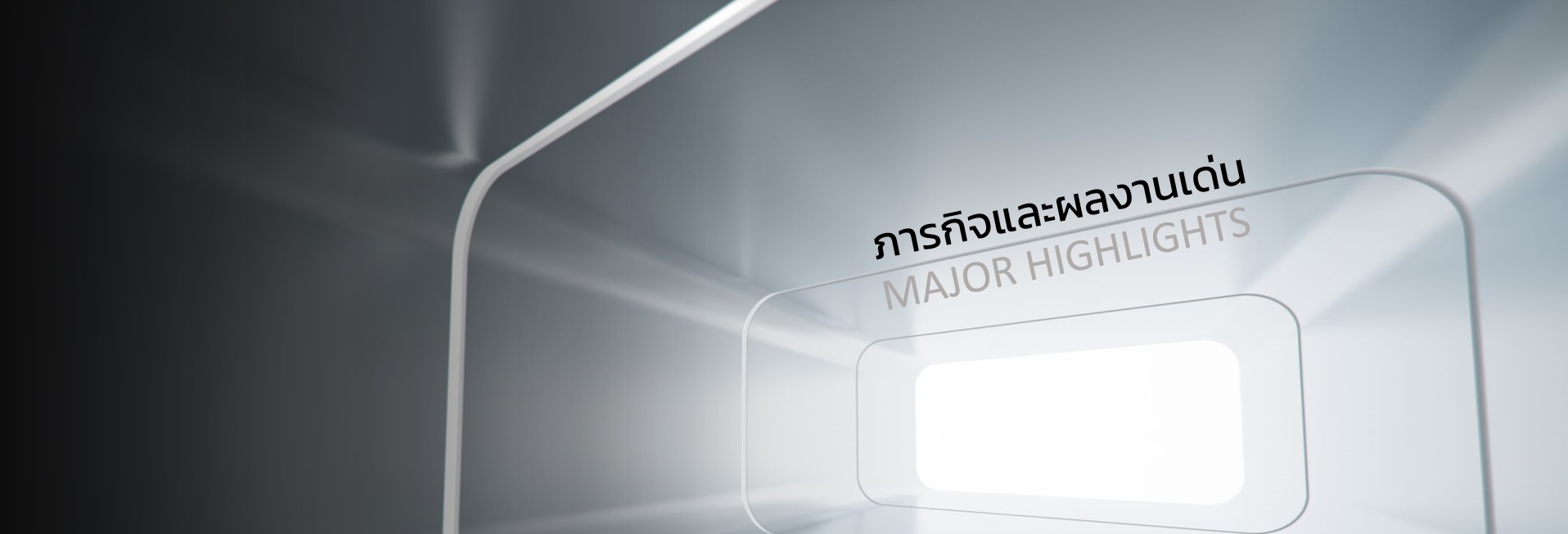

Promoting circular economy design for sustainable resources use
Background
As the lead agency for sourcing and managing raw materials, the Department of Primary Industries and Mines (DPIM) under the Ministry of Industry has embarked on a project to promote the adoption of Design for Circular Economy principles, ensuring sustainable resource utilization. This initiative encompasses both raw materials derived from natural sources and secondary raw materials procured through recycling and waste management effort. To advance Thailand’s transition towards a circular economy and a low-carbon society, DPIM has entrusted the National Metal and Materials Technology Center (MTEC) with the role of project consultant. This collaboration aims to foster the integration of circular economy principles into the design processes of Thai businesses. The initiative aligns with Thailand’s ambitious goal of achieving Carbon Neutrality by 2050 and Net Zero Greenhouse Gas emissions by 2065 and beyond.
Goals
To develop and enhance industrial entrepreneurs’ application of circular economy principles in design and implementation.
Empowering industrial entrepreneurs to seamlessly integrate circular economy principles into their design and implementation processes is the crux of this initiative. The goal is to develop prototype products and/or production processes that embody circularity, bolstering Thailand’s industrial competitiveness and ensuring its swift alignment with the global embrace of circular economy policies. Cultivating partnerships with a diverse range of organizations is paramount to fostering future collaboration and synergy.
What did the research team do?
The MTEC research team’s approach encompasses five key steps:
1. Imparting knowledge of circular economy principles, including cutting-edge innovations and technologies, is achieved through hands-on training under the rigorous program “Empowering the Thai Industry through Circular Economy Design.” This program aims to equip Thai entrepreneurs with the necessary skills and knowledge to design and develop products and processes that foster resource conservation and minimize environmental impact. Embracing circular economy in design entails adopting life cycle thinking, encompassing a value network perspective and fostering restoration and regenerative practices for sustainable resource stewardship.
2. Offering comprehensive mentorship and consultation to six carefully selected businesses, empowering them to elevate their design capabilities and knowledge in alignment with circular economy principles. This hands-on approach culminated in the development of a “CE Design Solution” prototype, fostering enhancements and improvements across products (including packaging), production processes, material selection, usage, end-of-life management, and disposal. This initiative leverages a selection process centered on CE principles derived from ISO 59004 WD2 as its cornerstone. It champions systems thinking and cultivates the integration of activities throughout the value chain/value network.
3. Through a collaborative approach, the consulting team and the selected company’s team engage in brainstorming sessions to formulate a development plan for the “CE Design Solution” prototype, ensuring alignment with CE principles. They meticulously define the scope of the targeted system, thoroughly assess relevant stakeholders, encompassing regulations and their respective roles, and systematically gather fundamental data on resource usage and circulation within the system of interest.
Next, they proceed to select CE strategies and identify promising areas of action. During this phase, preliminary solutions are presented and undergo iterative refinement under expert guidance from Thai and Swedish specialists. This collaborative process culminates in the development of prototypes and the validation of the proposed concepts.
4. The initial feasibility assessment of the three design solution prototypes encompasses (1) Modular Design Prototype. (2) Production Process Optimization Prototype: harnessing by-products for enhanced value creation (3) Recyclable School Milk Bage Prototype: fostering sustainability through circular packaging solutions.
5. Sharing the successful outcomes and facilitating knowledge transfer is achieved through a seminar entitled “Advancing Businesses through Design in Practice of Circular Economy (CE Design Solution in Practice).” This platform serves as a hub for showcasing the successful development of design solution prototypes and disseminating innovative knowledge and technologies pertaining to the integration of circular economy principles into design practices. The seminar fosters cross-pollination of ideas and experiences between participants and pioneering entrepreneurs.


Research works
The developed CE design solutions are:
1. By embracing modular design principles, the Deesawat Industry Co., Ltd. team has crafted adaptable teak wood furniture products. These adaptable pieces are designed to be able to change their configuration, enabling them to be used in various forms throughout their lifespan.
2. By meticulously scrutinizing resource utilization and implementing waste reduction strategies, the Peace Canning (1958) Co., Ltd. team has successfully minimized waste and transformed by-products into valuable resources within their production processes.
3. Siegwerk (Thailand) Limited has pioneered circular packaging solutions by designing recyclable materials and implementing innovative recycling method. Their commitment to sustainability extends to using de-inked ink in the printing process and recovering high-quality plastic materials from school milk bags for further use. This comprehensive approach to material management throughout packaging lifecycle exemplifies their dedication to environmental responsibility.
4. P S M Plasitech Group Limited Partnership team has made a significant contribution to sustainable manufacturing by developing high-quality PP (Polypropylene) PCR (Post-Consumer Recycled) plastic pellets. This innovative approach partially replaces virgin raw materials with recycled content, increasing the utilization of recycled materials and enhancing the value proposition of automotive components.
5. The Mae Fah Luang Foundation team under the Royal Patronage has crafted eco-conscious gift boxes by repurposing coffee filter paper from local Doi Tung shops. These innovative boxes have been imbued with enhanced water resistance, extending their lifespan and promoting sustainable practices.
Research status
Completed/ Finished.
Outlook
Empowering entrepreneurs across diverse industries to embrace circular economy design principles is a crucial component of the project’s second phase.
Research team
Dr.Nudjarin Ramungul, Dr.Asira Fuongfuchat, Dr.Witchuda Daud, Dr.Sirikarn Wisetsuwannaphum, Dr.Yot Boontongkong, Nuttakorn Keratipaiboon, Pavares Viwatthanasittiphong, Saisamorn Khunhom, Nuengruthai Chuayrueng, Saitip Soratana, Kanokporn Mansakul and Paradee Bunrong

